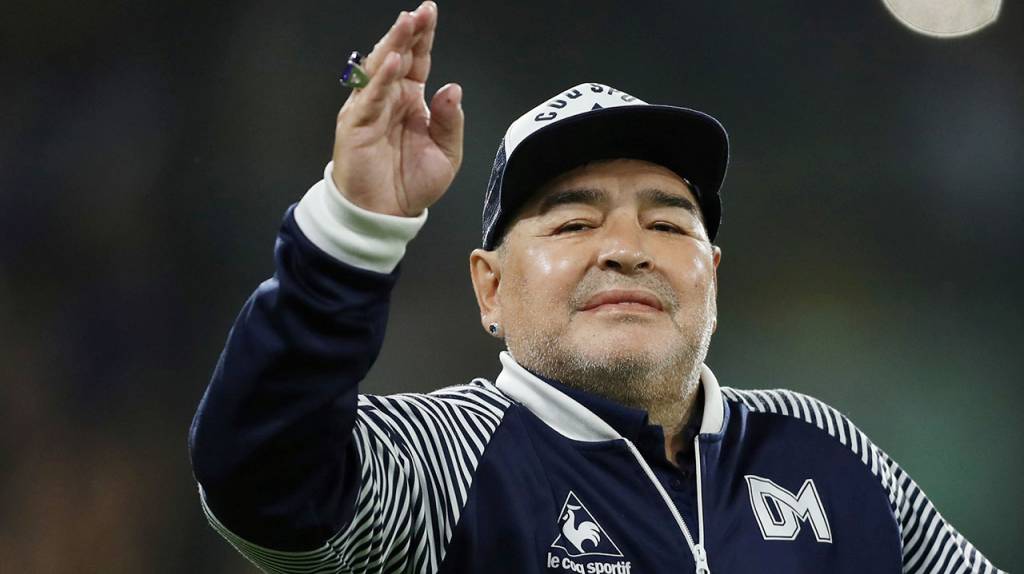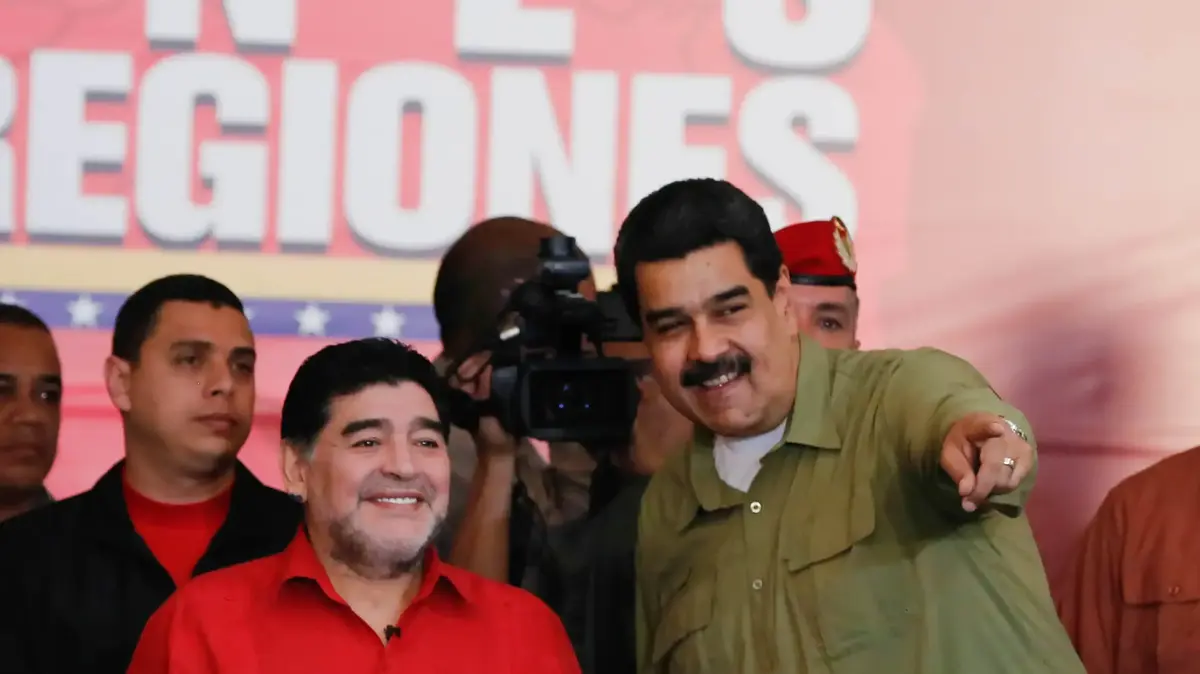Visit the Maradona house museum 2:39
(CNN Spanish) -
The San Isidro Attorney General's Office, in charge of the investigation into the death of Diego Armando Maradona, ordered a medical board to answer 24 questions that will serve to determine whether or not the death of the soccer star was the result of the negligence of the professionals who treated him.
Several false health certificates, allegedly signed by Maradona's treating doctors;
questions about the home hospitalization in which the former soccer player lived his last days;
doubts about his psychological state to be able to decide autonomously if said hospitalization was the best option, and lack of attention to cardiac pathology are some of the central elements that the researchers analyze and that arise from the file accessed by CNN through a source that is part of the cause.
These points triggered the questions of the Prosecutor's Office that is investigating the possible commission of a wrongful death.
The case has no formal defendants but seven people have been notified that they are being investigated.
1. Doctor Leopoldo Luque
Regarding his professional relationship with Maradona, the neurosurgeon declared in court: "My actions do not show that I acted negligently."
MIRA: Doctor who treated Maradona: Diego was fine, he had autonomy and he decided
2. Doctor Agustina Cosachov
advertising
The psychiatrist's lawyer, Vadem Mischanchuk, told CNN that his client "from a medical point of view acted with his best judgment."
3. Dahiana Madrid
She was the nurse on duty the day Maradona died.
His defense attorney, Rodolfo Baqué, assured in a dialogue with CNN that Madrid "had no responsibility whatsoever for the death" of Maradona.
4. Ricardo Almirón
It was another nurse who cared for Maradona during his last home stay.
Before the Justice, he declared that he was in charge of administering the psychiatric medication.
He criticized the lack of emergency supplies in the house where the former footballer was staying and clarified that during his work no one informed him about any other pathology other than the alcohol addiction he suffered from on the 10th. He did not respond to CNN's repeated requests for comment.
5. Carlos Diaz
He was Maradona's psychologist.
In conversation with CNN, he maintained that his goal was for Diego to quit addictions "and he died in the middle."
6. Nancy Forlini
Doctor from the health provider company who provided support in Maradona's home hospitalization.
When consulted by CNN, she replied that "she is not going to speak."
7. Mariano Perroni
Coordinator of the nursing team that cared for Maradona.
Before the Justice, he declared that he did not have any position with implication in Diego's health care.
CNN tried to communicate directly with Perroni but has not been possible.
Diego Armando Maradona died on November 25 in a house located in a private neighborhood in the province of Buenos Aires.
He was staying there in a home hospitalization, after having been operated on for a subdural hematoma on his head.
The neurosurgeon Leopoldo Luque and the psychiatrist Agustina Cosachov, considered doctors treating the ex-footballer by the researchers, signed together with their relatives the discharge from the Olivos Clinic and the conditions that the home hospitalization should meet: nursing assistance and therapeutic companion.
Two weeks later, Maradona died.
MIRA: Investigation tries to reconstruct last moments of Maradona
Since then the judicial investigation was opened.
There were several test measures, including raids, opening of telephone conversations, handwriting skills, access to medical records and statements from people close to the former footballer.
The San Isidro General Prosecutor's Office, in Buenos Aires, gathered this material since November and sent it to the medical board, whose response - it is expected - is fundamental to this case.
The axes of the questions from the Prosecutor's Office to the Medical Board
Heart disease
"The causes of death were due to acute secondary lung edema and exacerbated chronic heart failure," as determined by the autopsy performed on Maradona's body.
The Prosecutor's Office is looking for answers about the complexity of the cardiac pathology, if it was previously detectable and from what moment.
The doctor Alfredo Cahe, who treated Maradona between 1978 and 2009, declared in court that in 2004 the soccer star had been detected heart disease.
For this reason, Cahe maintained that "it is very simple to detect that there was negligence" since he believes that Maradona's medical team controlled the psychiatric medication but not the cardiac one.
Luque told Justice that he and his team were trying to find "the best alternative for Diego to recover from his addiction."
That would have implied, according to the limits of Luque and Cosachov's specialties, working with psychiatric medication.
Maradona's treatment team did not include a cardiologist.
Even the nurse Almirón admitted before the Justice that the medication that was supplied to the ex-footballer was psychiatric.
Medical care history in the last months of life
The Prosecutor's Office is trying to determine if Maradona's medical body should have been informed, through the patient's medical history, if he had a history of heart disease and act accordingly.
Leopoldo Luque had access to Maradona's medical history, according to the record.
He would have obtained it through a supposed authorization from the ex-footballer in which he allowed access to it.
A handwriting expertise determined that Maradona's signatures that appeared in said request for access to the medical record were false, according to the record.
Luque's lawyer, Julio Rivas, admitted such a falsehood but did not provide more details when asked by CNN.
Another issue related to the medical history that the Prosecutor's Office investigates is an alleged falsification of other documentation.
The psychiatrist Cosachov wrote in the medical record that on October 20, 2020, he had gone to Maradona's home to assess his health.
However, the records of income and expenses of the private neighborhood where the former soccer player resided do not show that on that day Cosachov entered the place.
Consequently, the doctor is being investigated for alleged ideological falsehood, confirmed a source with direct access to the cause.
Despite this, his lawyer told CNN that his client "did not issue any false documents."
Likewise, from the chats analyzed in the file it appears that apparently Cosachov could not ensure that Diego was awake and oriented.
Chat between Leopoldo Luque and Agustina Cosachov on October 26, 2020 (literal, without editing):
20:01:46 Leopoldo Luque: My name is Morla who wants a certificate that Diego is oriented in time and space
20:08:03 Agustina Cosachov: The issue is: is it oriented?
The file shows that this certificate was signed on October 20, the same day that the Prosecutor's Office investigated the alleged ideological falsehood.
For his part, Maradona's lawyer, Matías Morla, who would have requested the document, did not answer CNN's queries.
Outpatient of the Olivos Clinic
The medical board must determine whether Maradona was in a position to receive discharge and whether he had the self-validity necessary to be able to decide autonomously to initiate a home hospitalization, as recorded in the points of expertise.
The file shows a contradiction between two people close to Maradona in relation to the home stay.
A relative of the former soccer player stated that Luque told them that the best option was for Diego to start a home stay and not in a health center.
But on the other hand, Luque explained that the family rejected any compulsory hospitalization or judicial intervention and added that Maradona "was in full use of his mental faculties."
The chats that are in the file between the psychologist Carlos Díaz, who also treated Maradona, and Cosachov would give an account of a situation different from that indicated by Luque.
November 9 (two days before signing the discharge):
15:21:10 Carlos Díaz: (…) he keeps saying inconsistencies, raving.
15:29:40 Agustina Cosachov: (…) alternates moments of lucidity with confusion.
Conditions of home hospitalization
At this point, the Prosecutor's Office asks the medical board to determine if the address chosen for Maradona's discharge was adequate and if emergency items could be dispensed with.
In this sense, the judicial declaration of the nurse Ricardo Almirón was very critical.
Almirón claimed to have requested monitors, oxygen tubes and cardioverter-defibrillators for home hospitalization, which, according to him, were never provided.
According to his vision, these elements should have been "not only because of Diego's state of health, but also because it is recommended" in a home hospitalization.
Likewise, Carlos Cotaro, who was Maradona's therapeutic companion, told the court that such a home "was not a place prepared for a home stay."
"There was nothing.
Not a thermometer.
Maradona's treating doctors never clarified why these emergency elements were missing, but Luque explained in his judicial statement that the home stay was prepared to treat his chronic alcoholism.
Treating medical team
One of the two conditions that had been signed by Luque and Cosachov to proceed with the home hospitalization was that therapeutic companions participate so that Maradona was not alone during the treatment.
However, as stated in the file, two days after initiating the home hospitalization, the therapeutic companions were informed that for a few days their services would not be required.
The medical board must evaluate whether this decision was correct.
From the file it appears that it was Cosachov who communicated this to the therapeutic companion Cottaro and that the decision was due to the fact that Diego supposedly needed fewer people around him.
Chat between Agustina Cosachov and Carlos Díaz on November 14:
20:30:30 Carlos Díaz: Agus, if Diego goes well, this may be something that remains for posterity
20:30:38 Carlos Díaz: Either we lose enrollment and go to Cana or we become demigods hahahaha
20:30:38 Agustina Cosachov: I have faith in you
20:30:40 Agustina Cosachov: I have faith in us
Asked by CNN, Díaz explained that his message in that chat “was a metaphorical expression because that's the way things are with Maradona: either you're king or everyone insults you.
There were no grays.
For his part, Cosachov's lawyer clarified that the psychiatrist's response was that "she always had faith in the treatment."
In addition, the Prosecutor's Office asked to analyze whether a specific medical conduct should have been adopted after an apparently unusual swelling in Maradona, registered on November 16.
At that time, the swelling was dismissed.
Nursing
According to what the nurse Dahiana Madrid stated in her observations on November 25, at 7:30 in the morning the woman heard Maradona wandering inside her room.
At 9:20 am the nurse stated that the patient refused "to have vital signs checks."
In relation to the part of Madrid, the Prosecutor's Office asked the medical board if it would have been correct to indicate a medical action in case of having checked the vital signs in the moments before Maradona's death.
The medical board began its work on Monday, March 8.
Justice estimates that it will end in April.
For the Prosecutor's Office, these responses will be fundamental because, according to a source that participates in the investigation, "it will mark a roadmap to move forward with formal accusations or discard them."
Diego Armando Maradona


/cloudfront-eu-central-1.images.arcpublishing.com/prisa/P4H4KHB2DZAUFKDGYVH7ODLTBM.jpg)






